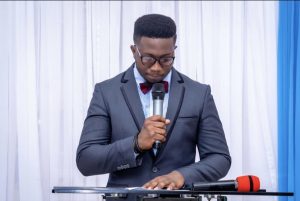As we celebrate the 30th anniversary of Sierra Leone’s 1991 national Constitution, here are ten (10) interesting facts about the constitution:
- No one can be taken to court for any offence for which he has previously been convicted for by the court. Similarly, if he has been acquitted (freed) by the court from that offence he cannot be taken to court again for the same offence. Section 23(9)
- The constitution gives every Sierra Leonean the right to bring a court action before the Supreme Court to seek redress if any of their fundamental rights have been infringed upon by any person or institution. Section 28
- The President of the Republic of Sierra Leone can pardon any person for a crime he/she may have committed if the person has been tried for that crime by the court and found guilty of the said crime. The power is under the prerogative of mercy. Section 40 (4)(e)
- The constitution states that no person shall hold office as President for more than two terms of five years each, whether or not the terms are consecutive. Section 46(1)
- The Vice President is the Chairman of the Police Council in Sierra Leone. The Police Council advises the President on all matters relating to the Police, internal security and the appointment of the Inspector General of Police. Section 156 (1)
- No one can bring a civil or criminal court action against a Member of Parliament because of what the Member of Parliament said during Parliamentary proceedings. Section 99(1)
- No one can bring an action against a Judge for any matter or anything he does whilst performing his judicial functions. Section 120 (9)
- The 1991 constitution states that every court must give judgments or rulings not later than three months after the close of the case and submission of arguments and the court must provide copies of any judgment or ruling delivered to the parties involved. Section 120 (16)
- The Supreme Court is the only court which can depart from its previous decisions when it appears right to do so and all other courts are bound to follow its decision. This means a future Supreme Court can disagree with what the present Supreme Court has held to be the law. Section 122(2)
- A Judge shall not while he continues in office as a judge, hold any other office where he will make profit or earn emolument, whether by way of allowances or otherwise, whether private or public, and either directly or indirectly. Section 138(4).
 Babatunde Johnson is a law graduate from the University of Sierra Leone, Fourah Bay College and he is currently awaiting admission to the Sierra Leone Law School. He is also a legal content creator and Co- Founder at Salone Law Centre.
Babatunde Johnson is a law graduate from the University of Sierra Leone, Fourah Bay College and he is currently awaiting admission to the Sierra Leone Law School. He is also a legal content creator and Co- Founder at Salone Law Centre.

